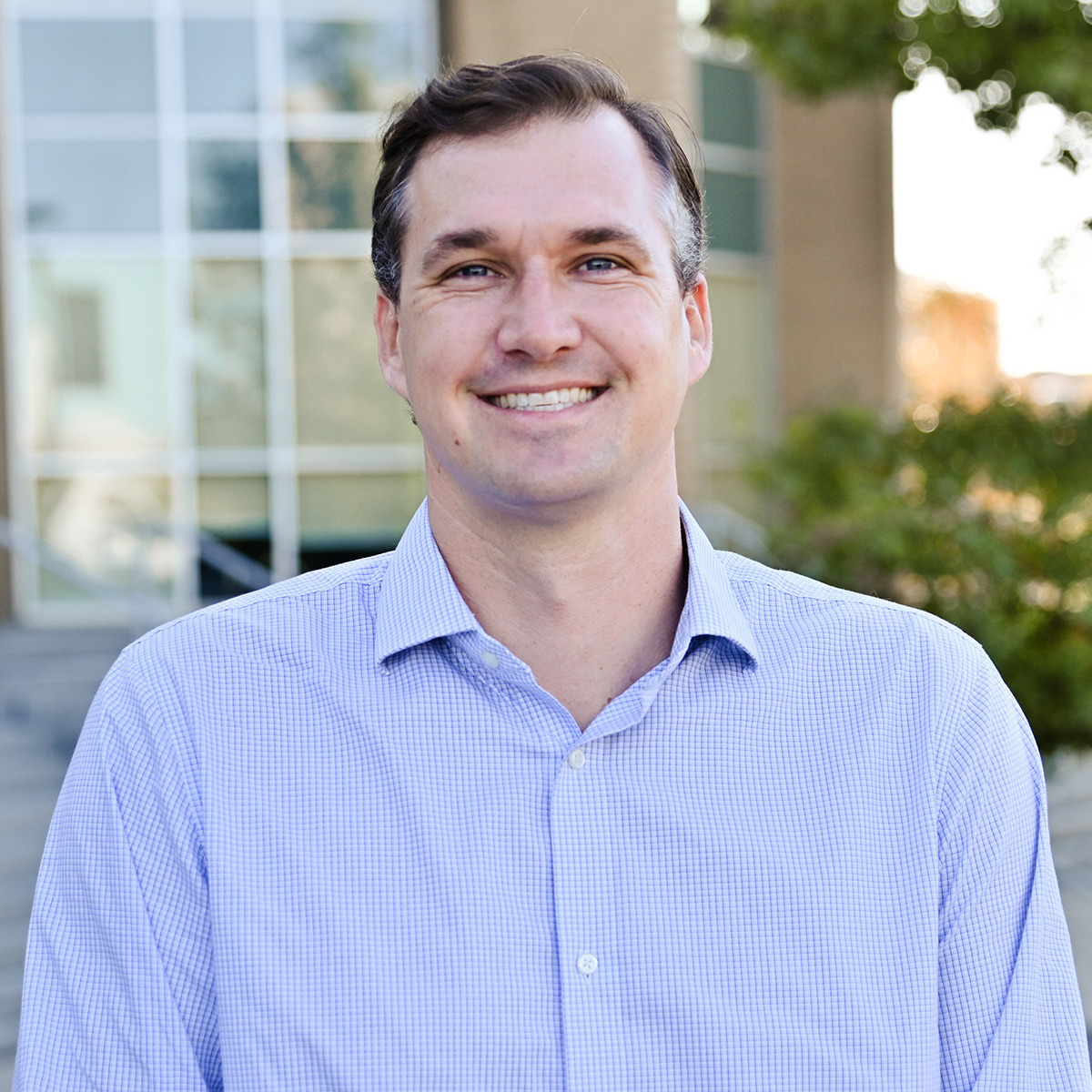February 12, 2024 | Erin Bluvas, bluvase@sc.edu
Pieter Baker is more than your typical infectious disease expert. He’s approaching the intersection
of drugs, germs and justice from every angle – looking at bacteria/viruses and injectable
drugs to immigration policies and the criminal justice system. He came to USC this
past fall to continue this work as an assistant professor in the Department of Epidemiology and Biostatistics.
The biology program at Point Loma Nazarene University was Baker’s first exposure to the path he would one day pioneer. He studied antibiotic-resistant bacteria pollution in the surrounding areas of San Diegos’s coastal wetlands before graduating with his bachelor’s degree in 2010.
Baker gained research experience as a lab chemist before making the move to New York City, where he would launch his public health career and earn a Master of Public Health in Epidemiology from Columbia University. As a disease control officer with the Department of Health and Mental Hygiene, he led projects related to the surveillance of and response to local infectious disease outbreaks in the city. Baker then spent time as a surveillance manager in Sierra Leone working on the outbreak response to the West Africa Ebola epidemic.
Returning to the states in 2015, Baker took a position as an HIV Research Program Manager at the University of California San Diego. At the Antiviral Research Center and later the Division of Infectious Disease and Global Health at the School of Medicine, Baker worked on HIV prevention projects along the U.S.-Mexico border. He also had his first introduction to research concerning people who inject drugs.

“Our mobile harm reduction programs would provide HIV and STI prevention resources, sterile syringe services, and overdose prevention resources to homeless people who inject drugs in Tijuana,” Baker says.
During this time, he also worked on a cohort study of police in Tijuana. The project aimed to reinforce policing knowledge and behaviors related to public health while working with community members who use drugs.
This work fed into to Baker’s research as a student in the Joint Doctoral Program in Public Health (Global Health Track) at UC San Diego and San Diego State University as well as in his role as a Human Rights Fellow at UC Berkely. To support his dissertation project, Baker received a National Institutes of Health T32 predoctoral fellowship at UC San Diego, where he examined HIV and substance use with the Division of Infectious Disease and Global Public Health at the School of Medicine.
With continued support from another T32 grant as a postdoctoral fellow at Johns Hopkins University’s Bloomberg School of Health, he studied drug-related harms among people who inject drugs with a special focus on access to health services and socio-structural barriers to care. His work also examined immigration policy and its enforcement, looking at factors such as access to health care services, coerced medical procedures and mental health resiliency among asylum seekers.
Today, Baker’s research focuses on the risk environment for infectious diseases and other drug-related harms among vulnerable populations, including people who inject drugs. He is particularly interested in measuring and mitigating exposures to the criminal justice system (e.g., policy enforcement, policing, incarceration) that may drive harm. Another area of interest is improving access to care for essential health and social services in both urban and rural settings.
When looking for his first long-term academic appointment, Baker chose USC for several reasons.
“I joined the Arnold School to be a part of the transformative teaching, mentoring and research taking place here,” he says. “I am looking forward to developing multidisciplinary research collaborations within the school and across campus.”
“Dr. Baker is a valuable addition to our faculty for many reasons,” says epidemiology and biostatistics department chair Anthony Alberg. “With his work at the crossroads of several key areas related to health and human rights, Dr. Baker will contribute to keeping us at the leading edge of public health research, helping to ensure we are tackling the important issues of our day.”